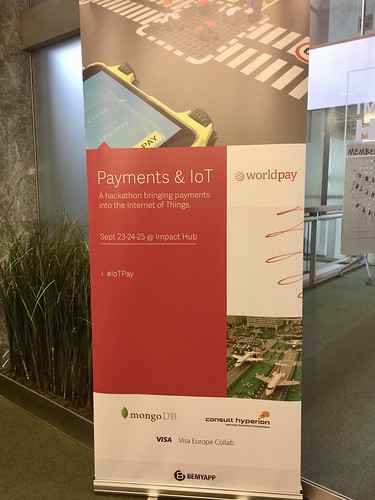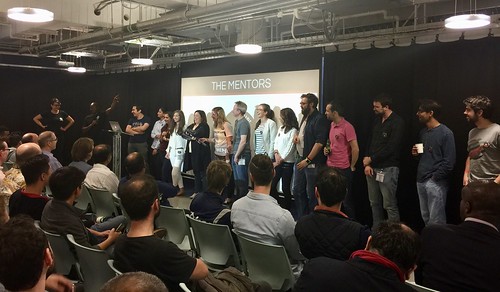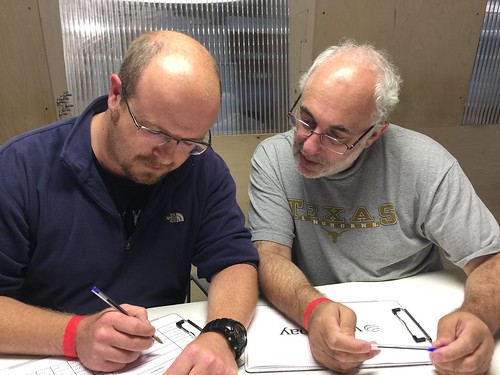The wonderful people at WorldPay had a hackathon, and Consult Hyperion (along with the Visa Collab and MongoDB) were one of the sponsors of the event, so I got to be a judge too. It was, I have to say, great fun.
You can see some of photos from the event here. There were 140+ “hackers” supported by mentors from WorldPay and the sponsor. The mentors helped the hackers to understand and use the WorldPAy IoT API so that they could get going on their ideas.
I went along to help to get things going along with my Consult Hyperion colleagues Matt and Stefan.
We’d had brought along a 3D printer for the hackers to use, so Matt gave a Friday night tutorial on how to create digital 3D objects and get them turned into actual physical objects. Pretty cool.
The hackers had more tutorials on Saturday then they had the rest of Saturday and Sunday morning to develop their ideas. I cam back on the Sunday to join with the rest of the judging team. Here I am with Nick from WorldPay getting started on the judging process.
I won’t steal WorldPay’s thunder but announcing who the winners and runners up were here, you can see this over at their web site.





Comments
Post a Comment